Colombia recently signed a deal with South Korea for the development of several oil projects in Colombia. In an email interview, Eric Farnsworth, vice president of the Council of the Americas, discusses Colombia’s oil sector. WPR: What is the current state of Colombia’s oil sector, including extent of reserves and level of infrastructure? Eric Farnsworth: Simply put, Colombia has enjoyed an energy renaissance over the past decade. As noted in a recent Americas Society/Council of the Americas report on Colombia’s energy sector security is vastly improved and successive governments have placed an emphasis on attracting investment through regulatory stability, open […]
Energy Archive
Free Newsletter
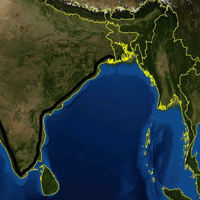
After almost 40 years of intermittent and fruitless talks, Bangladesh and Myanmar appear close to a final settlement of their maritime boundary dispute in the Bay of Bengal. Frustrated with stalled negotiations, Bangladesh submitted the case to the International Tribunal for the Law of the Sea (ITLOS) in 2009. After a series of oral hearings in September, which included numerous technical arguments, the court recently adjourned and plans to deliver a ruling in March 2012. The speed with which the case has progressed is in stark contrast to other maritime boundary disputes in Asia, but that is not surprising: There […]
Iran recently joined Russia in expressing concern about negotiations among the European Union, Azerbaijan and Turkmenistan over a proposed trans-Caspian pipeline. In an email interview, Gawdat Bahgat, a political science professor at National Defense University, discussed diplomacy among the Caspian littoral states. WPR: What are the main issues facing the Caspian littoral states in terms of maritime boundaries and resource rights? Gawdat Bahgat: Though the Caspian region does not have the massive proven oil and gas reserves the Persian Gulf region holds, Azerbaijan, Kazakhstan and Turkmenistan have proven themselves as major energy producers and exporters. The intense disagreement over maritime […]
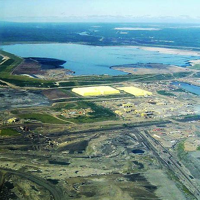
The proposed Keystone XL pipeline, which would bring crude oil from the so-called oil sands in Canada’s Alberta province through an almost 2,000-mile pipeline to the U.S. Gulf Coast, has in many ways become ground zero in the U.S. debate over fossil fuels, the environment and climate change. But perhaps most relevant in the current row, though practically absent from the debate, is the increasing awareness that energy security must be included as part of the calculus in determining energy sources. Indeed, terminology such as “friendly” supplier — regularly applied to Canada in U.S. energy discussions — underscores what is […]
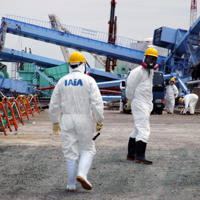
As the International Atomic Energy Agency held its Board of Governors meeting and annual General Conference over the past two weeks, the members of this often-overlooked United Nations body found themselves thrust again into the public limelight and burdened with a rapidly expanding agenda. Governments jousted over how to craft new approaches to deal with the aftermath of the nuclear accident at Fukushima, divvy up the agency’s budget and deal with controversial nuclear programs in the Middle East. The debates took place among a membership bitterly divided between those states with advanced nuclear capabilities and those that lack them, divisions […]

This is the second of a two-part series examining the policies and political challenges facing the new government of Thai Prime Minister Yingluck Shinawatra. Part I examined domestic issues. Part II examines foreign policy and the implications for regional stability. With its domestic opponents watching closely for missteps, the government of Thailand’s recently elected prime minister, Yingluck Shinawatra, will have to tread extremely carefully in matters of foreign policy. The mishandling of relations with Cambodia by the administration of Yingluck’s predecessor, former Prime Minister Abhisit Vejjajiva, had resulted in border skirmishes that killed 28 people this year alone. Yingluck’s Pheu […]
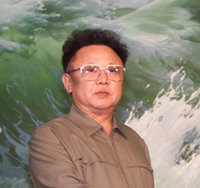
Last week, WPR’s Judah Grunstein noted some interesting developments in Russia-Korea relations. These included North Korean leader Kim Jong Il’s conferring with President Dmitry Medvedev and other Russian leaders in a rare visit to Russia in August; the signing of a Memorandum of Understanding regarding construction of a gas pipeline connecting Russia to South Korea via North Korea; the launching of a rail link between Russia and the North Korean port of Rajin; and plans to conduct a joint maritime search-and-rescue exercise in 2012. These developments have highlighted Moscow’s desire to play a major role in the future of the […]
It looks like North Korean leader Kim Jong Il’s August meeting with Russian President Dmitry Medvedev was a productive one. This week has seen the announcement of a number of modest but significant initiatives with the potential to create lasting ties between the two countries. Most important is the signing of a Memorandum of Understanding between Gazprom and the North Korean Oil Ministry for the construction of a gas pipeline linking Russian supplies to South Korea. (Separate but coordinated discussions were held with the head of South Korea’s state-run gas company as well.) Also, a rail link between a Russian […]

A memorandum of understanding between the Armenian Ministry of Energy and Natural Resources and the Isle of Man-registered International Minerals & Mines Ltd. is paving the way for the exploration of Armenia’s shale reserves. Should large-scale commercial extraction proceed, Armenia’s energy find could grant the landlocked Caucasus nation a measure of energy independence and, with it, newfound geopolitical freedom. The Aug. 3 deal comes on the heels of another agreement between the Energy Ministry and the U.S. State Department in June to cooperate in energy exploration, commercialization and investment. This agreement plans “cooperative assessment and technical studies of Armenia’s energy […]
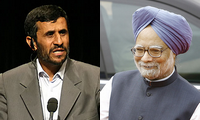
Ending a months-long dispute over oil payments, Iran has now resumed oil shipments to India, with Turkey stepping in as a key facilitator to resolve the impasse. Turkey’s Halkbank is currently routing Indian oil payments to Iran that had been blocked by U.S. sanctions; according to reports, more than 80 percent of the $5 billion in accumulated arrears have been cleared. The tripartite arrangement, which comes amid regional tensions over Syria’s future, indicates that India and its overall energy interests are emerging as a key variable in the strategic calculus of Middle Eastern capitals. Previously characterized mainly by drift, the […]
Last month, South Korean President Lee Myung-bak embarked on a tour of Mongolia, Uzbekistan and Kazakhstan, resulting in the signing of a number of trade deals. In an email interview, Matteo Fumagalli, head of the department of international relations and European studies at the Central European University, discussed South Korea-Central Asia Relations. WPR: What is the extent of South Korea’s diplomatic and trade relations with Central Asia? Matteo Fumagalli: Unlike his predecessors, who did not place a high priority on Central Asia, President Lee Myung-bak has paid considerable attention to the region. In 2009 Lee launched a new Asia Initiative, […]

Prior to the Fukushima nuclear power plant disaster in Japan, the nuclear energy industry was poised for a global expansion of unprecedented size. Proponents of nuclear energy still see a bright future in a world where electrical demand grows hand in hand with a burgeoning global middle class and everybody wants to reduce CO2 emissions. But vociferous industry opponents now claim nuclear power has been dealt a Chernobyl-like deathblow. Unsurprisingly, most pessimists are found in the advanced West — witness Germany’s decision to abandon nuclear power — while most optimists are found in emerging economies such as China and India. […]
